Top 16 SaaS SEO Tools To Boost Website Ranking
A startling 68% of internet experiences start with a search engine, according to Bright Edge. This indicates that ranking on top of search results is essential. However, are you struggling to stay afloat in the ever-evolving sea of search engine rankings?
You’re not alone. In the current digital environment, obtaining a high search engine results page (SERP) score is essential for increasing digital visibility and generating organic traffic. However, it can be difficult to navigate the complicated world of SEO, particularly for companies juggling many marketing campaigns.
But don’t worry! This blog post is your lifeline.
We’ll delve into the top 16 SaaS SEO tools that empower businesses to take control of their search engine destiny. We’ll provide you with the information and resources you need to move up the SERP ladder and draw in your target audience, from competitor analysis and keyword research to technical SEO audits and content optimization. So, buckle up, SEO warriors, and get ready to unlock the secrets of search success!
Table of Content
What Do SaaS SEO Tools Do?

Consider a group of proficient SEO experts operating in the background, analyzing your website, spotting chances for optimization, and proposing tactics to elevate your search engine ranks. That’s what SaaS SEO tools do but in a streamlined, automated way. These powerful SaaS SEO software solutions simplify and enhance various features of search engine optimization and for software-as-a-service (SaaS) businesses. They offer a comprehensive suite of features to tackle various SEO tasks, including:
- Keyword research:
Unearthing the most relevant keywords your target audience is searching for.
- Competitor analysis:
Spying on your competitors’ SEO strategies and identifying their strengths and weaknesses.
- Technical SEO audits:
Rectifying and fixing technical issues on your website that hinder search engine crawlability and ranking.
- Content optimization:
Providing insights on optimizing your website content for specific keywords and user engagement.
- Backlink analysis:
Tracking and analyzing the backlinks pointing to your website is crucial to SEO.
Best SaaS SEO Tool
In today’s competitive online landscape, ranking high in search engine results pages is crucial for any SaaS business. To achieve this, you need the right tools to help you grow your website for search engines. Here, we explore some of the best SaaS SEO tools available, catering to different needs and budgets.
1. Google Analytics (GA4)
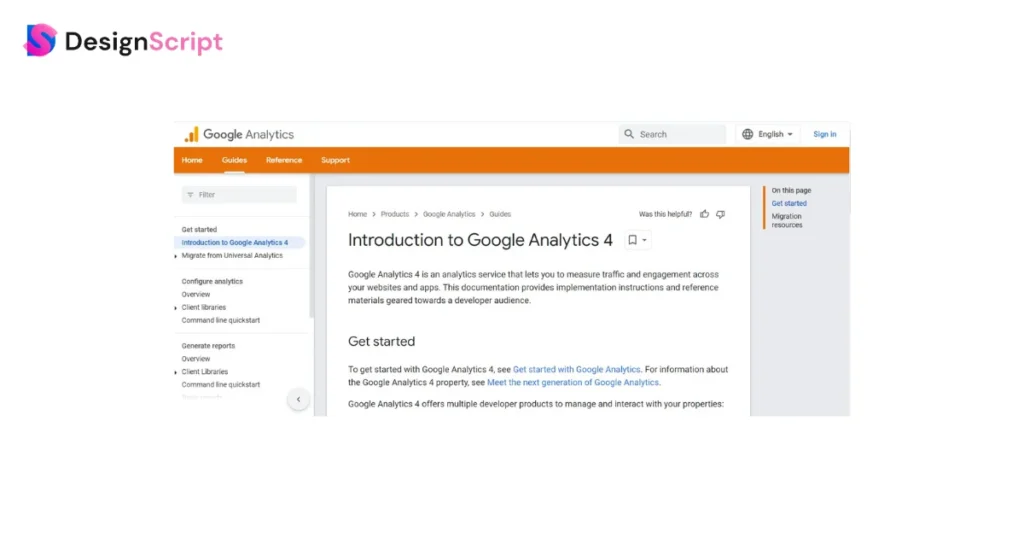
This free offering from Google provides invaluable insights into your website’s traffic and user behavior. You can track key metrics like website visits, bounce, conversion, and user demographics. GA4 also offers advanced features like audience segmentation and custom reporting, allowing you to understand your target audience better and optimize your website accordingly.
2. Hemingway App
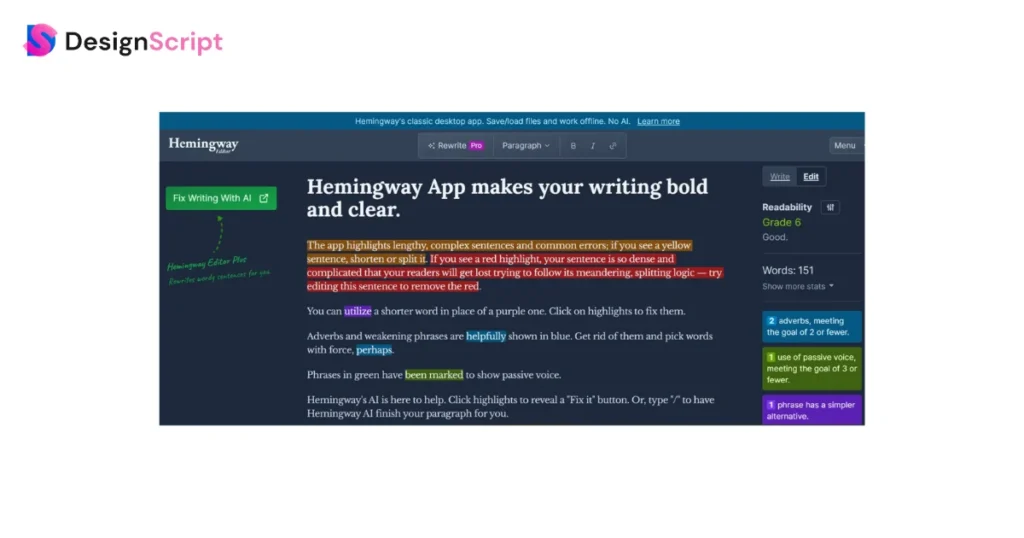
While not specifically an SEO tool, the Hemingway App is a valuable asset for any content creator. This free online easiest seo tool for saas tool helps enhance the readability of your website content by highlighting complex sentences, overused adverbs, and passive voice. By creating clear and concise content, you improve customer experience and enhance your website’s search engine ranking.
3. Keywords Everywhere

This browser extension provides real-time keyword search volume data, competition analysis, and related keyword suggestions directly within search engines like Google and YouTube. This information lets you identify relevant keywords with sufficient search volume and lower competition, helping you target the correct keywords to optimize your content and improve organic search ranking.
4. SEO Monitor
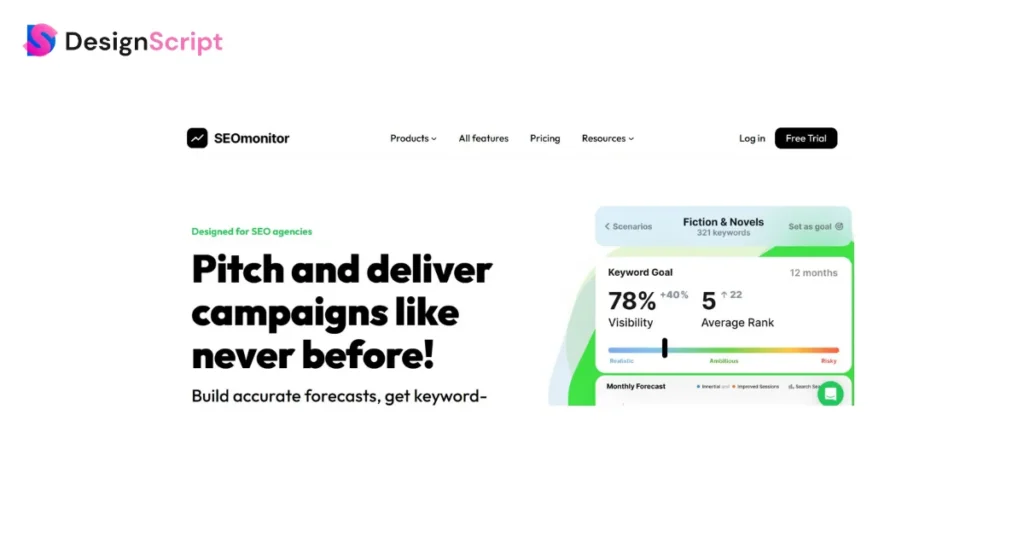
This affordable SEO tool offers a comprehensive website audit, identifying technical SEO issues like broken links, slow loading times, and mobile-friendliness problems. Addressing these issues ensures a smooth user experience for your website visitors. It improves your website’s crawlability for search engines, impacting your search ranking.
5. Google Search Console
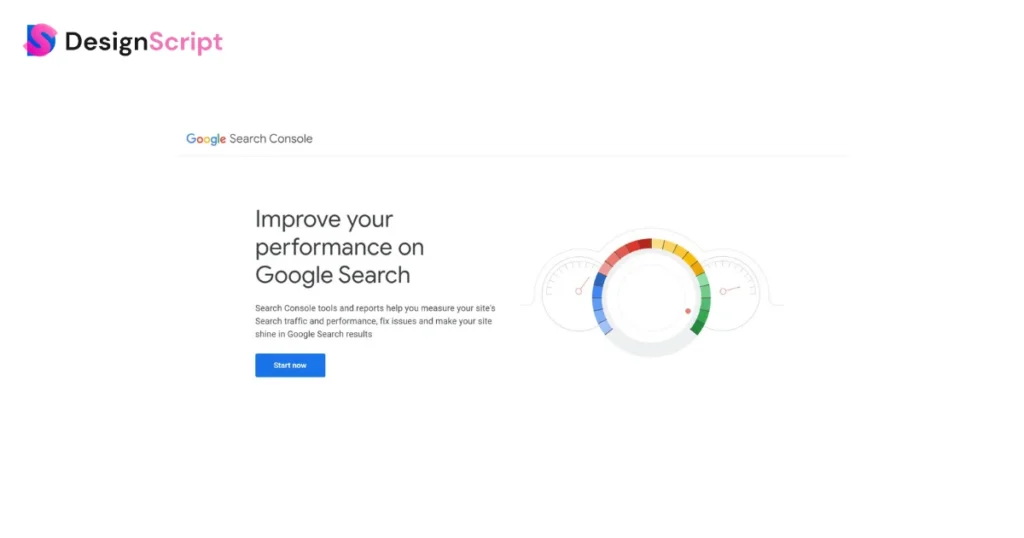
Another free tool from Google, GSC provides valuable insights into your website’s technical health and performance in Google Search. You can use GSC to identify crawl errors, submit sitemaps, track indexing status, and track keyword rankings. By addressing issues highlighted by GSC, you can improve your website’s visibility and search ranking in Google.
6. PageSpeed Insights
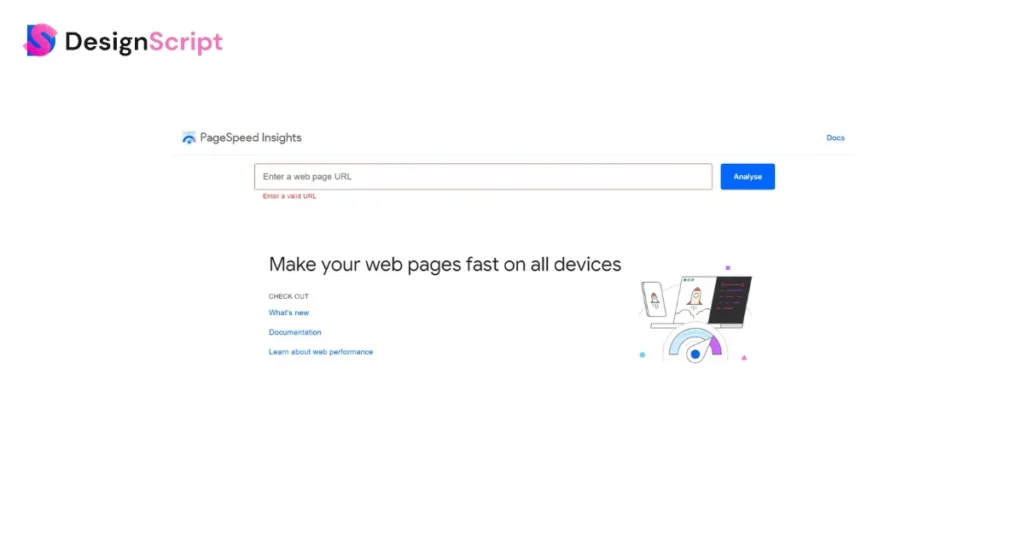
Developed by Google, PageSpeed Insights is a must-have tool for any SEO strategy. The tool analyzes your website’s loading speed on desktops and phones. It gives you ideas to improve the speed. Faster loading makes your visitors have a better experience. It also helps your website rank grow in search engines. The tool divides its suggestions into “Opportunities” and “Diagnostics.” This makes it easy to see what to work on first. Whether it’s making images smaller, reducing resources that slow down loading, or using browser caching, PageSpeed Insights helps you create a fast-loading website that keeps your visitors engaged.
7. SE Ranking
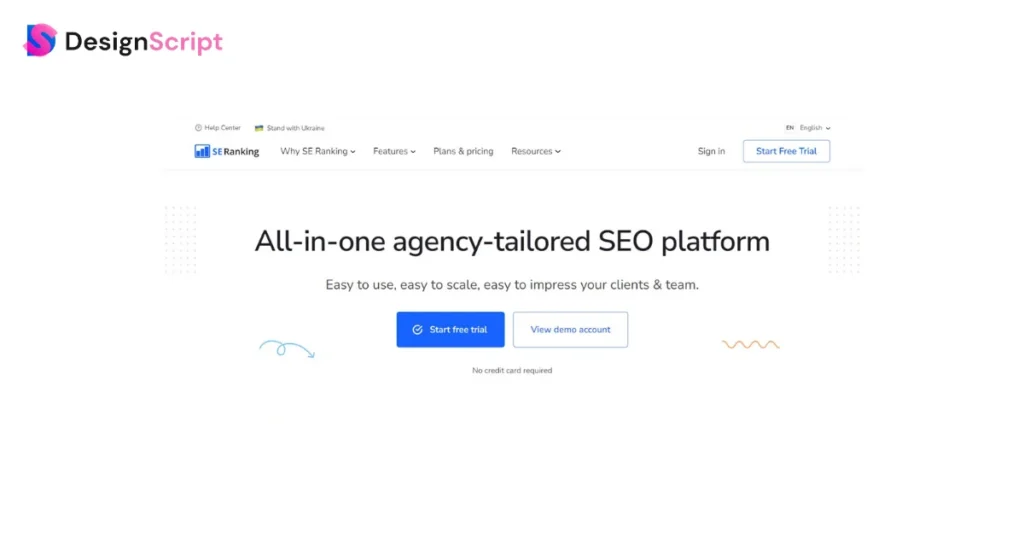
SE Ranking is an SEO tool. It has many features. You can use it to research keywords. You can track your ranking for important keywords. You can also analyze your website’s SEO health. This includes on-page and technical SEO. Additionally, you can monitor how your competitors are performing. One of SE Ranking’s strengths is its user-friendly interface and actionable reports. You can easily see your website’s overall SEO score and drill down into specific areas for improvement. The tool also offers competitor comparison reports, allowing you to set your performance against your rivals and identify potential gaps in your strategy.
8. SEO Minion
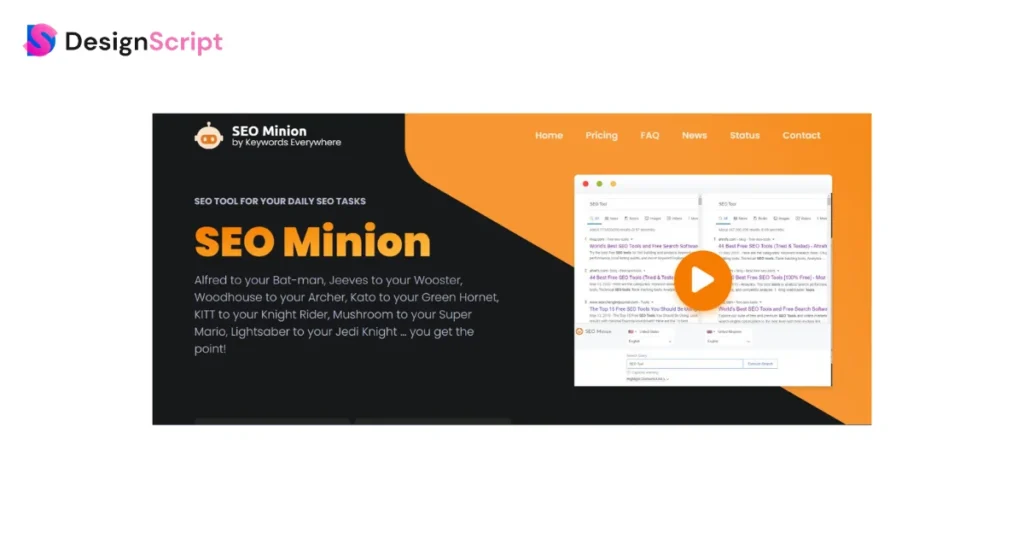
SEO Minion is a browser extension primarily designed for Chrome and Firefox. While more comprehensive than other tools on this list, it provides a convenient set of features for on-page SEO optimization. With SEO Minion, you can quickly check a web page’s title tag, meta description, heading tags, and internal links. It also highlights broken links, missing alt text for images, and other common SEO issues. This makes it a potential tool for content creators and website editors to ensure their pages optimize for search engines.
9. Yoast
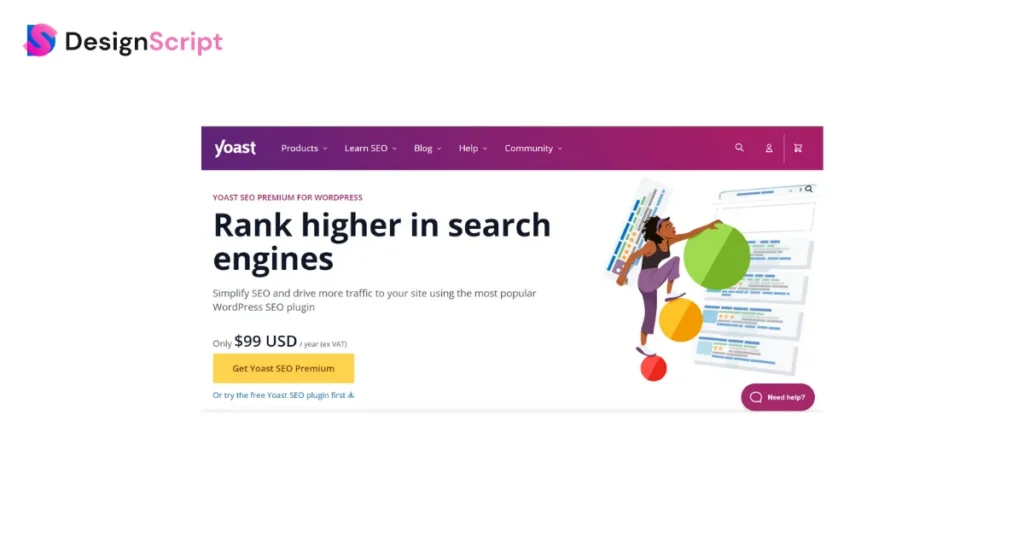
Yoast SEO is one of WordPress’s most popular free SEO plugins.Yoast SEO has a user-friendly interface and it guides users in optimizing content for keywords. Yoast SEO suggests ways to improve readability. It helps optimize title tags and meta descriptions along with ensuring proper internal linking on pages. It also links with Google Search Console. This lets you see your website’s search performance in your WordPress dashboard.
10. Ahrefs

Ahrefs is a top SEO tool. It helps you analyze your website’s backlinks. This shows how many backlinks you have, their quality, and the websites linking to you. This information is important and it shows your website’s authority. It also helps you find chances to build more backlinks. Ahrefs also offers advanced keyword research tools to discover high-volume, low-competition keywords. It provides insights into keyword difficulty, search volume trends, and related searches, enabling you to target the correct keywords and create content that resonates with your audience.
11. Jasper AI
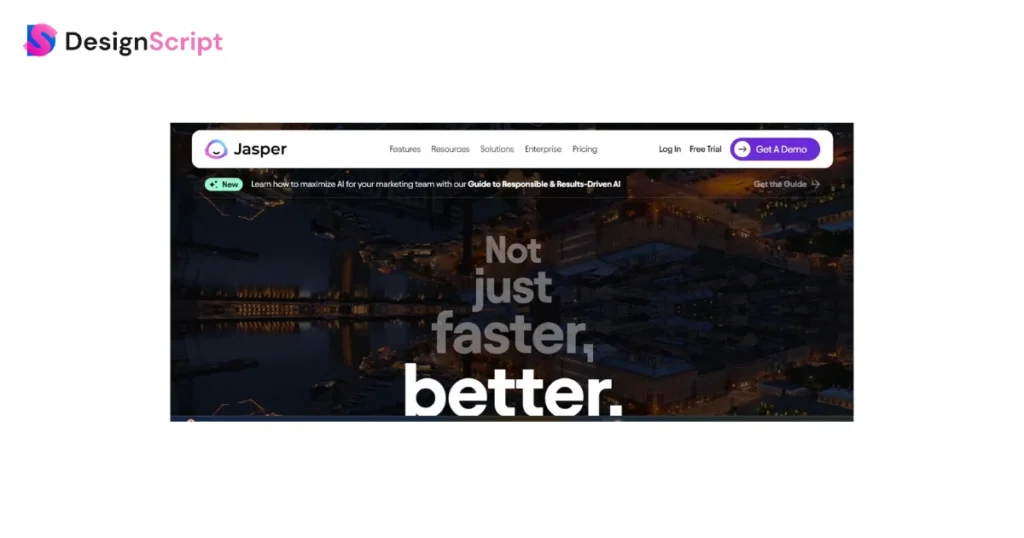
Jasper AI is a powerful AI writing tool and it can help with your SEO. Jasper can create high-quality content. This includes blog posts, product descriptions, and website text. Jasper uses algorithms to understand what people are searching for. This helps you make content that appeals to your audience. It also helps your content rank well in search results.
Here are some features of Jasper AI for SEO: Generate comprehensive blog posts, articles, and landing pages that Google favors. Craft compelling product descriptions, meta descriptions, and website copy that incorporates relevant keywords and improves organic traffic. Rephrase existing content, identify plagiarism risks, and ensure your writing maintains the desired tone and style.
12. Screaming Frog
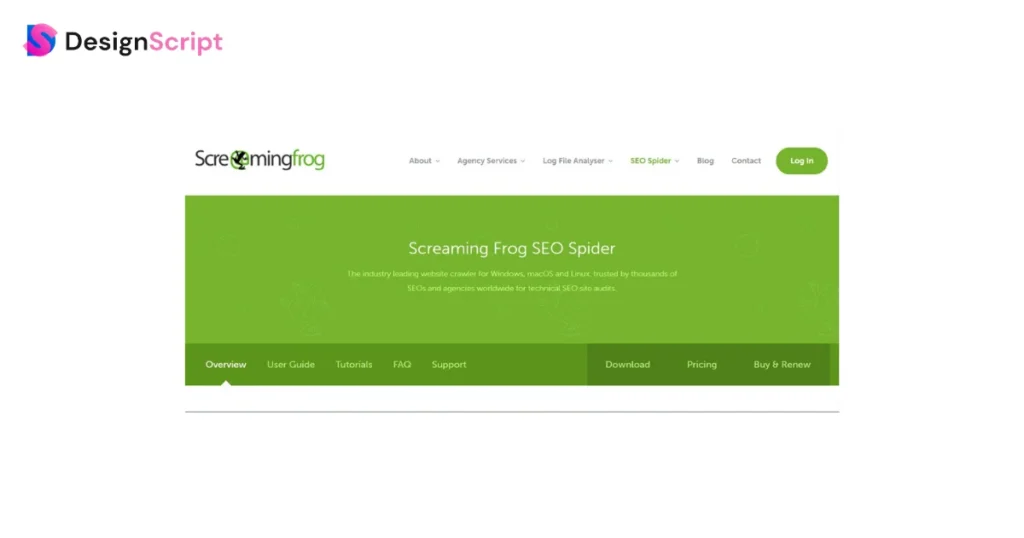
Screaming Frog is a desktop application that executes as an SEO website crawler. It scans your website and identifies technical SEO issues hindering your search engine ranking. Screaming Frog is known for its easy to use interface and comprehensive reports, making it a potential tool for beginners and experienced SEO professionals.
Here are some key elements of Screaming Frog for SEO:
- Identify broken links, duplicate content, missing meta descriptions, and other issues that can impact your ranking.
- Efficiently edit meta descriptions, titles, and robots.txt files across multiple pages.
- Generate and submit sitemaps to search engines to ensure proper website indexing.
13. Answer the Public

Answer the Public is a free keyword research device. It helps you find questions people ask online about your topic. This information is very useful. It lets you create content that meets your audience’s needs and search queries. Answer the Public shows the questions in a visual way. This makes brainstorming content ideas easy. It also helps you find long-tail keywords with high potential.
Answer the Public has some key features for SEO. It can find long-tail keywords in the form of questions. This lets you target specific user needs. You can also see related questions grouped by themes. This gives you a full understanding of user interests. Using Answer the Public is a cost-effective way to research keywords and get content ideas.
14. Google Trends
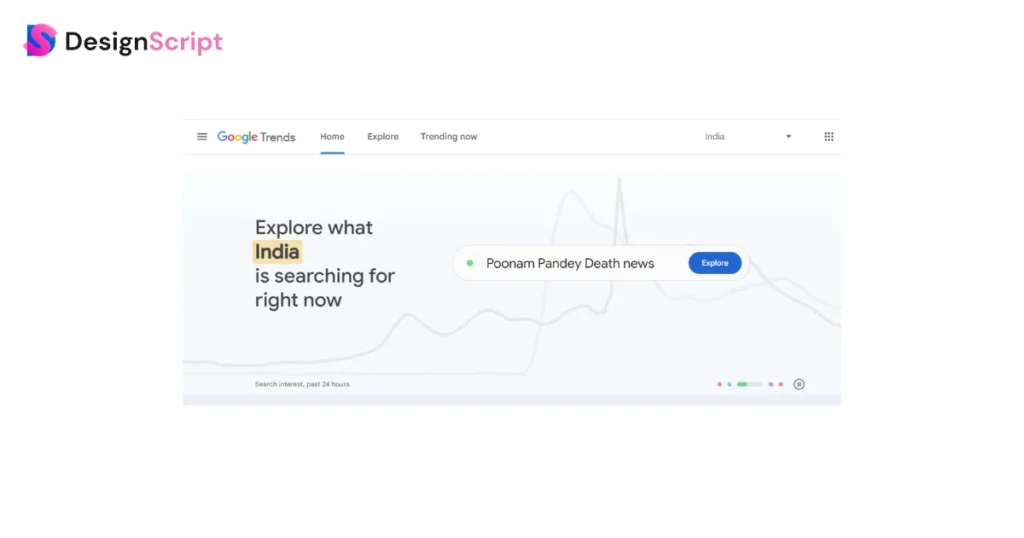
Google Trends is a free of cost tool offered by Google that shows how often specific terms are searched for over time. This information is crucial for understanding search trends and identifying keywords with growing popularity and you can check the search volume of different keywords, filter by region and time frame, and even see related queries to understand user search behavior better.
Here are some key elements of Google Trends for SEO:
- Access valuable search volume data without cost.
- Discover keywords that are gaining popularity and capitalize on current search trends.
- Analyze the search volume of different keywords to make informed content-creation decisions.
15. Surfer SEO
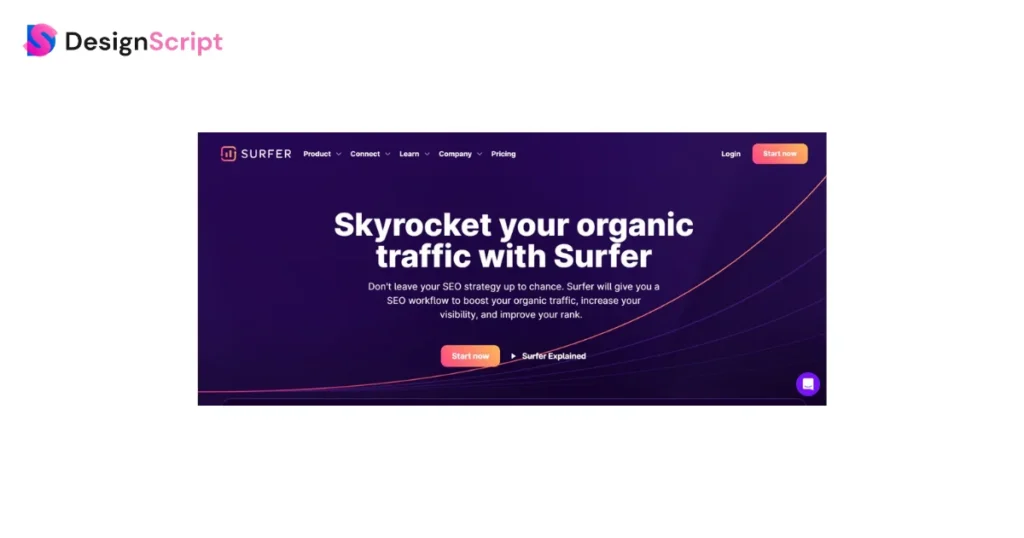
Surfer SEO is one solution for SEO tools that allows you to optimize your website range for search engines. It provides a comprehensive score based on various on-page SEO factors, including keyword usage, content length, readability, and internal linking. Surfer SEO also offers suggestions for improving your content based on best practices and competitor analysis.
Here are some key elements of Surfer SEO for SEO:
- Analyze your content and receive actionable suggestions to improve its SEO score.
- Get recommendations for keyword density, content length, and internal linking structure based on your target keyword.
- See how your content compares to top-ranking competitors and identify areas for improvement.
16. SEOquake
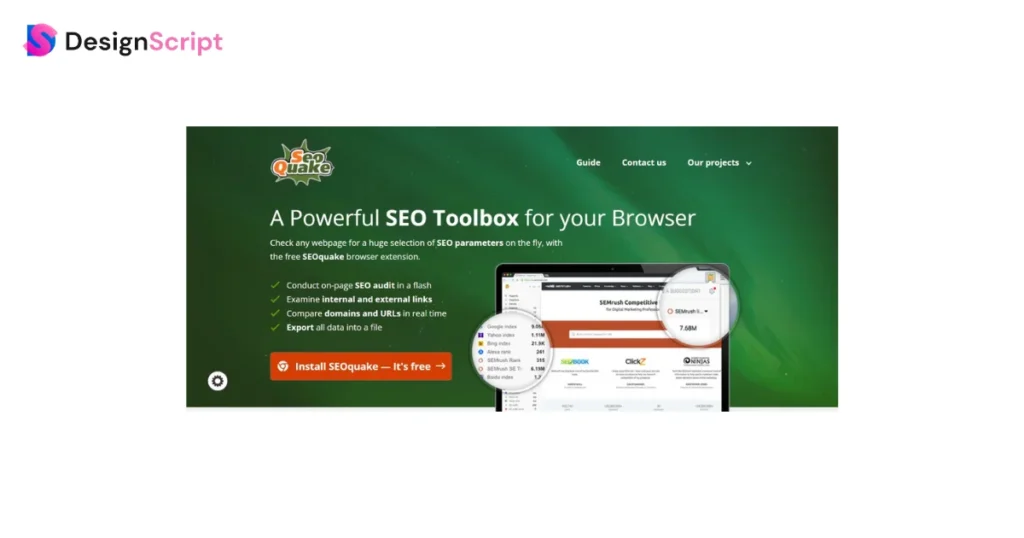
SEOquake is a free browser extension that equips you with SEO tools like analyzing webpage health, checking keyword density, and comparing websites. It provides key SEO metrics, overlays data on search results, and audits webpages for optimization issues. While free and user-friendly, it offers a paid version with more features and relies on external data sources. Consider exploring various SaaS SEO Tools to find the best fit for your needs.
While these are just a few examples, the landscape of SaaS SEO tools is vast and constantly evolving. The best tool for your clear needs will depend on your specific budget, website size, and desired functionalities. Consider exploring these options and others to find the perfect fit for your SEO journey and elevate your SaaS website to new heights.
Boost Website Ranking
This blog post discusses the significance of SEO for SaaS businesses. It introduces 16 top SaaS SEO tools to help them improve their search engine ranking. These tools offer various functionalities, including keyword research, competitor analysis, technical SEO audits, and content optimization. Some popular options include Google Analytics, SEMrush, Ahrefs, and Yoast. The best tool for a business depends on its budget, website size, and specific needs. SaaS businesses can improve their online presence and attract more organic traffic by exploring these options and implementing effective SEO strategies.
You can thank us later!
FAQs
SaaS SEO tools are software applications delivered online (SaaS) that help businesses manage various aspects of search engine optimization (SEO). They offer features like keyword research, competitor analysis, technical SEO audits, content optimization, and backlink monitoring to improve website ranking and organic traffic.
Traditional SEO tools often involve standalone saas seo software installations. In contrast, SaaS tools are web-based and accessible from any device with an internet connection. Additionally, SaaS tools typically offer subscription-based pricing, while traditional tools may have upfront costs.
Choosing the right SaaS SEO tool requires considering your specific needs and budget. Evaluate website size, desired functionalities, available features, user interface, and pricing options.

